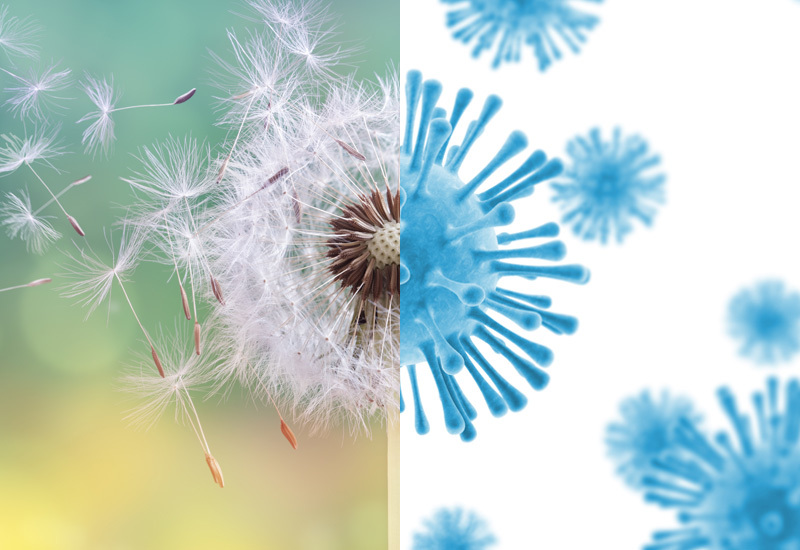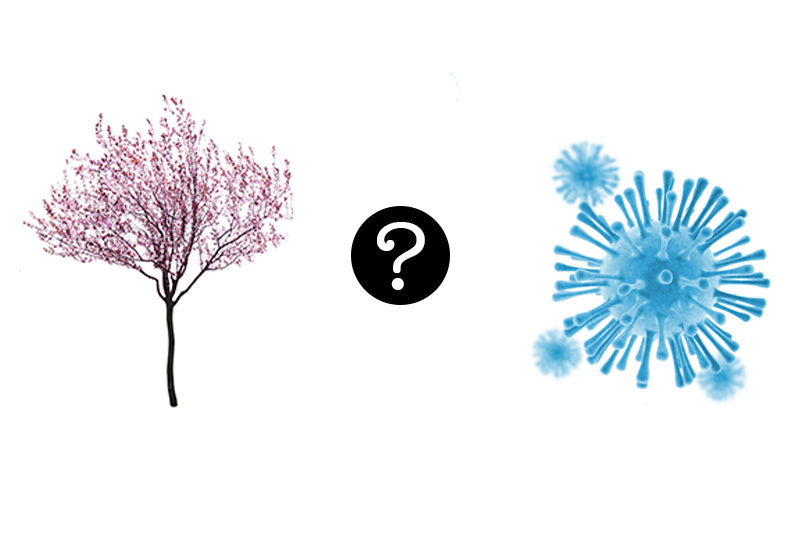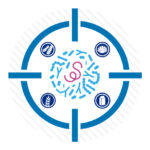Is it allergies or COVID-19?

Allergy season has kicked off earlier this year than usual. This means children may start having symptoms — such as coughing and sore throat — that are similar to those of COVID-19, but are triggered by a reaction to pollen or grass.
Dr. Subhadra Siegel the director of the Allergy and Immunology Program at Boston Children’s Health Physicians, says it’s important for parents to know how to tell the difference between allergies and illnesses, such as the flu and COVID-19, so they can respond appropriately.
Look closely at the symptoms
“Right now, many people are anxious and concerned because COVID-19 is so widespread,” Dr. Siegel says. “But I tell parents that while the symptoms of allergies and COVID-19 can be similar, there are some concrete ways to tell which one their child is experiencing.”
Here are several differences that can be important clues:
- COVID-19 causes a system-wide response, such as a fever, body aches, chills, a sore throat, weakness, and respiratory symptoms. An allergy is usually more localized, causing symptoms centered around the nose, eyes, and throat, and usually no fever.
- Allergies cause itchiness: itchy eyes, itchy nose and sneezing, and a tickle in the throat. Itchiness is usually not a symptom of COVID-19.
- COVID-19 doesn’t seem to cause much in the way of nasal symptoms. That means if your child is sneezing a lot, it’s more likely allergies, a cold, the flu, or another illness.
- Children with allergies may also have asthma, which can cause wheezing, coughing, and chest tightness. While many people with COVID-19 also have a cough and chest tightness or difficulty breathing, most don’t have wheezing.

Ways to manage allergies
If your child has allergies, your doctor may recommend allergy medications to prevent or manage the symptoms. These may include:
- antihistamines to block histamine, a chemical the body releases when exposed to a trigger
- nasal corticosteroids to reduce inflammation in the nasal passages
- a rescue asthma inhaler and inhaled corticosteroids if your child also has asthma
You can also help your child manage allergy symptoms at home with these tips:
- Have your child wear a hat and sunglasses to prevent pollen from getting in their eyes.
- Remove your child’s clothes as soon as they come indoors and wash them to remove allergens.
- Leave shoes at the door so your family doesn’t track allergens through your home.
- Wash your child’s hands and face as soon as they come in from the outdoors.
When it’s allergies and illness
Remember that children with seasonal allergies can still get sick. “With chronic nasal congestion, people don’t clear germs as well from the nose. Therefore, they can get more viruses and those viruses can linger longer,” says Dr. Siegel. This means if your child has allergies and then gets new symptoms that don’t respond to allergy medications, it’s important to check with your pediatrician.
If you have any questions about any symptoms your child is having, you should call your child’s clinician. Most of our pediatricians are offering virtual visits, so you don’t even have to come into the hospital.
This story was adapted from content originally published by Boston Children’s Health Physicians.
Get more answers about Boston Children’s response to COVID-19.
Related Posts :
-

Team spirit: How working with an allergy psychologist got Amber back to cheering
A bubbly high schooler with lots of friends and a passion for competitive cheerleading: On the surface, Amber’s life ...
-

Could we cure or prevent food allergy by targeting an intestinal protein?
When is food simply nourishing and enjoyable, and when does it provoke an allergic reaction? The answer appears to lie ...
-

Model enables study of age-specific responses to COVID mRNA vaccines in a dish
mRNA vaccines clearly saved lives during the COVID-19 pandemic, but several studies suggest that older people had a somewhat reduced ...
-

Keeping up with the tween skin care trend: What’s in those products?
More teens and tweens are hitting the mall to grab skin-care products they’ve seen on social media — but are ...





